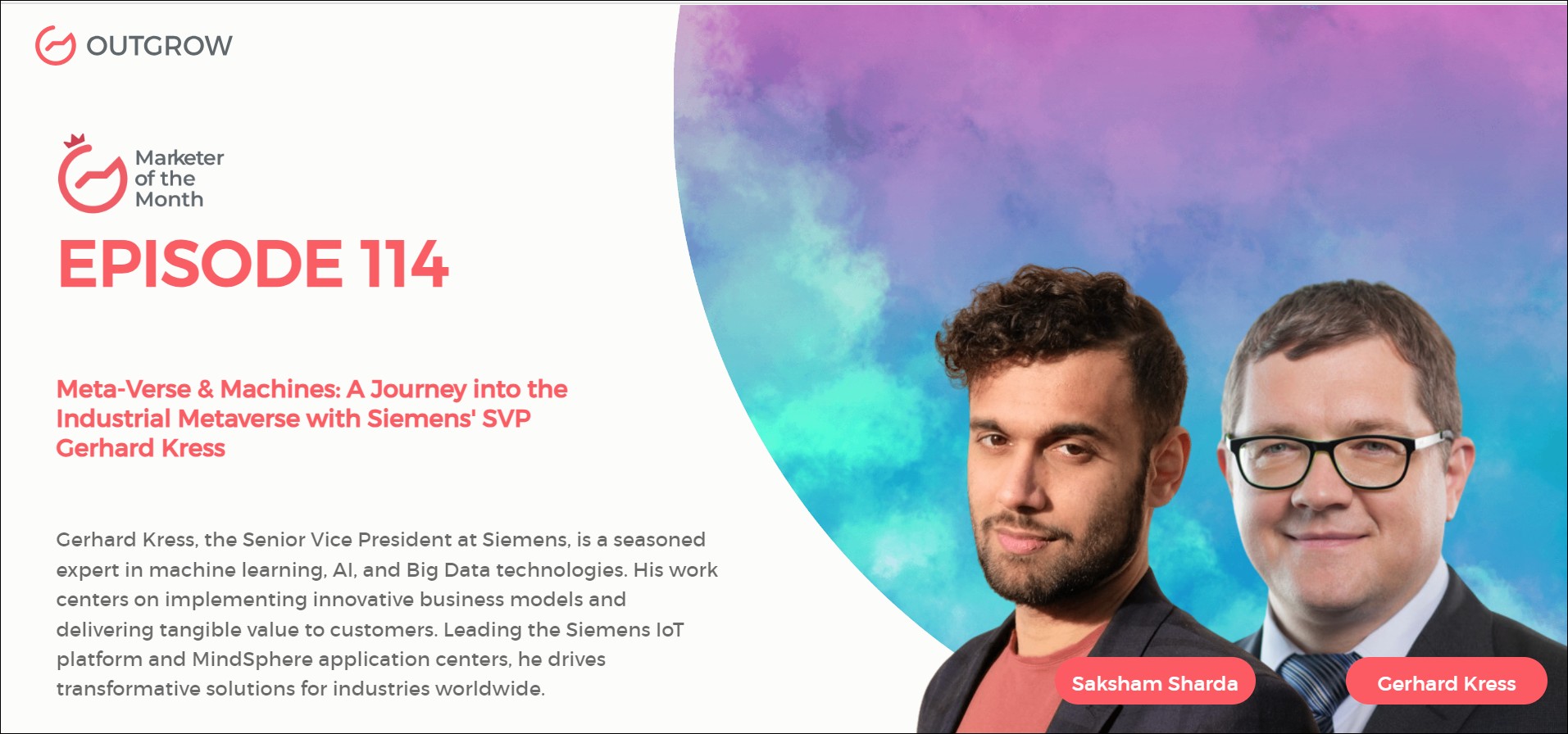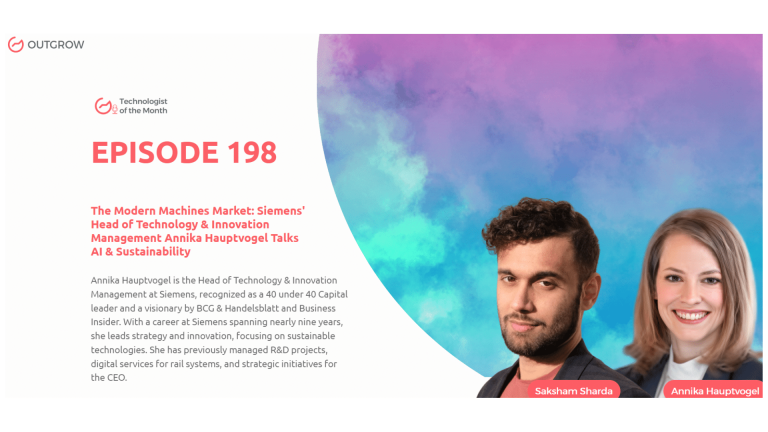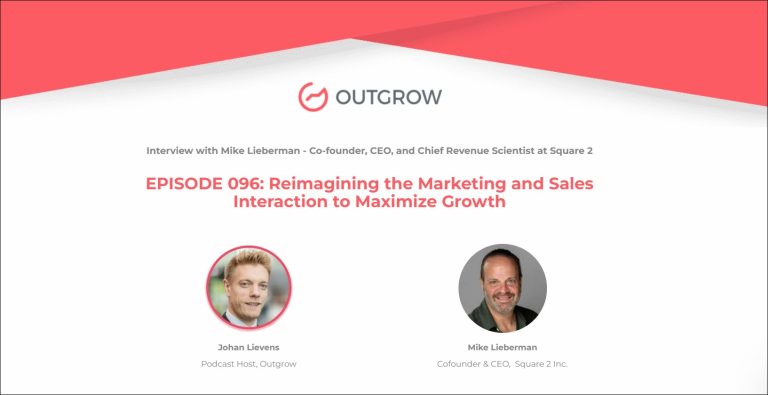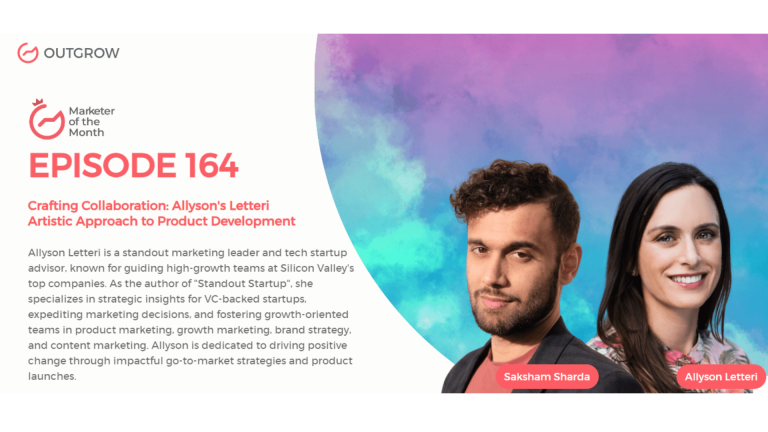Summarize with :
EPISODE 114: Marketer of the Month Podcast with Gerhard Kress
Table of Contents
Hey there! Welcome to the Marketer Of The Month blog!
We recently interviewed Gerhard Kress for our monthly podcast – ‘Marketer of the Month’! We had some amazing insightful conversations with Gerhard and here’s what we discussed about –
1. The Industrial Metaverse: Optimizing Production through Real-Digital Integration
2. Virtual Commissioning: Fast-Tracking Production with Digital Twins
3. Digital Transformation: Revolutionizing Industries and Infrastructure
4. Accelerating Production: The Role of AI and Digital Design
5. Tapping into the Industrial Metaverse: A Step-by-Step Approach for Businesses
6. Siemens’ AI Journey: Solving Customer Problems for Two Decades
About our host:
Dr. Saksham Sharda is the Chief Information Officer at Outgrow.co. He specializes in data collection, analysis, filtering, and transfer by means of widgets and applets. Interactive, cultural, and trending widgets designed by him have been featured on TrendHunter, Alibaba, ProductHunt, New York Marketing Association, FactoryBerlin, Digimarcon Silicon Valley, and at The European Affiliate Summit.
About our guest:
Gerhard Kress, the Senior Vice President at Siemens, is a seasoned expert in machine learning, AI, and Big Data technologies. His work centers on implementing innovative business models and delivering tangible value to customers. Leading the Siemens IoT platform and MindSphere application centers, he drives transformative solutions for industries worldwide.
Meta-Verse & Machines: A Journey into the Industrial Metaverse with Siemens’ SVP Gerhard Kress
The Intro!
Saksham Sharda: Hi, everyone. Welcome to another episode of Outgrow’s Marketer of the Month. I’m your host, Dr. Saksham Sharda, and I’m the creative director at Outgrow.co. And for this month we are going to interview Gerhard Kress, who is the Senior Vice President at Siemens. Thanks for joining us, Gerhard.
Gerhard Kress: Great to be here. Thank you.
Don’t have time to read? No problem, just watch the Podcast!
Or you can just listen to it on Spotify!
The Rapid Fire Round!
Saksham Sharda: We’ll start with the Rapid Fire Round. The first one is at what age do you want to retire?
Gerhard Kress: As soon as possible?
Saksham Sharda: What’s your favorite mobile app?
Gerhard Kress: Maps.
Saksham Sharda: How long does it take you to get ready in the mornings?
Gerhard Kress: Too long.
Saksham Sharda: The most embarrassing moment of your life?
Gerhard Kress: So many of them. Pass.
Saksham Sharda: Mountains or beaches?
Gerhard Kress: Alps.
Saksham Sharda: What’s the most useful mobile feature you can’t live without?
Gerhard Kress: Maps?
Saksham Sharda: Favorite color?
Gerhard Kress: Red?
Saksham Sharda: What time of day are you most inspired?
Gerhard Kress: Evening?
Saksham Sharda: How many hours of sleep can you survive?
Gerhard Kress: Just five.
Saksham Sharda: Fill in the blank. An upcoming marketing trend is ______.
Gerhard Kress: I don’t care what marketing trends
Saksham Sharda: The city in which the Best Kiss of your life happened.
Gerhard Kress: Antwerp
Saksham Sharda: Pick one Android or Apple?
Gerhard Kress: Apple
Saksham Sharda: The biggest mistake of your career.
Gerhard Kress: Also, the biggest success was invested in a system that turned out to be a failure after we change the strategy.
Saksham Sharda: How do you relax?
Gerhard Kress: Reading a book.
Saksham Sharda: How many cups of coffee to drink per day?
Gerhard Kress: I don’t drink any coffee
Saksham Sharda: A habit of yours that you hate?
Gerhard Kress: Procrastination.
Saksham Sharda: The most valuable skill you’ve learned in life
Gerhard Kress: Is listening to others
Saksham Sharda: Cities or countryside?
Gerhard Kress: Countrysides.
Saksham Sharda: The last one is your favorite Netflix show.
Gerhard Kress: Lucifer.
The Big Questions!
Saksham Sharda: Alright, so that was the rapid-fire round. Now we’re gonna go on to the bigger questions. You can answer with as much ease as you like. The first one is, what is the industrial metaverse? And what does it have to do with digital transformation today?
Gerhard Kress: So the industrial Metaverse for me is the next step in the transformation that we see in the industrial area. We’ve been talking about combining the real and the digital worlds for a decade roughly. And now we help create dynamic digital twins. We combine that with immersion, we combine that with collaboration. And that’s already what I believe is the metaverse and why is it relevant? Because it helps our customers to define their processes and to make the factories work before they have to build them. This makes them faster and better. And when they run the factories, they can optimize it while they’re running them when things around that change.
Saksham Sharda: So what’s the most exciting news you’ve seen till now?
Gerhard Kress: Most exciting news for me is things like virtual commissioning of a machine, you can actually before you get the machine delivered three months early, you get the digital twin of the machine, you can get it up and running, and optimize your CNC scripts. And you pretty much three months earlier up and producing. And that’s big for customers.
Saksham Sharda: The next one is do you think that digital transformation has the potential to revolutionize our industries and infrastructure?
Gerhard Kress: I believe it. That’s the reason why I believe it is when we have to transformation have in parallel with digital transformation on one side, but we also have sustainability transformation on the other side. This means we have to produce more with less. And this only works if we can have guaranteed stable processes and stable infrastructures that we do not need to worry about. And that’s exactly what the transformation provides. When you look back on a car unit, I’m old enough to still remember times when you were not sure your car starts in the morning, today. And that question doesn’t come to your mind anymore. It does. infrastructures are there and we don’t need to worry about them. And we shouldn’t production has to function. Now we see when supply chains don’t work, how many things are not available? And we can’t we can’t have to cope with that. This is not how things should be in the future. And no automation will bring us to the point that infrastructures are reliable at a minimal footprint helping us to go on with our lives as we need to.
Saksham Sharda: How will the industrial metaverse or rather, the acceleration of digital transformation, revolutionize industries and infrastructure, kind of the same question? Yeah.
Gerhard Kress: What are we going to see is that infrastructures become a fabric of society that there, we don’t need to worry about it, we don’t need to know about them that they’re going to support us also when there are changes, more people moving to cities, more people needing transport and so on. On the industrial side, we’re going to see a separation into mass production and mass customization. And mass customization needs exactly the Decimator version to happen because you only get what we want to have. And still, maintain sustainability in the process.
Saksham Sharda: With your expertise in operational management, what steps do you think need to be taken, to reduce the complete production timeline to a minimum?
Gerhard Kress: The first thing is we have to be able to design things digitally and the production process, they go hand in hand, and without needing to build prototypes, we can test them out digitally. And then we can simply instantly download that into the production flow. And this will squeeze timelines dramatically and makes things a lot faster.
Saksham Sharda: And how can businesses tap into the potential of industrial metals? What are things you have to look into as a business leader right now?
Gerhard Kress: I think the first big focus is what are the main questions with digital can help you. And these are business-specific questions, they’re not generic ones. And then find yourself a good partner that helps you in that way, because also for our customers, it’s a digital transformation on their own, they need to understand what digital helps and doesn’t help them acquire skills, they need a partner, a trusted partner, to help them move on that way. And in the beginning, the customers should not take the big all-in approach, I invest millions, but take step by step, getting services in there helping them have the build-up, let’s say due to another factory optimization on the production line, those sales topic then take step after step on this way.
Saksham Sharda: And what are some of the steps in this step?
Gerhard Kress: The first thing from everything is we need to have connectivity with the most important machines, we need to create a digital, simple digital representation of the process. Then start optimizing that production process, seeing the benefits, seeing how it frees up capacity, adding then you’re augmenting your production or manufacturing execution system so that you can run more complex workloads, upgrading certain machinery to get more data out of that, getting AI into the processes so that your machines run more efficient, then take the step towards having self-configuring production workflows. But this is a step up as that goes over a couple of years.
Saksham Sharda: So in your opinion, is the industrial Metaverse, a game changer in operational technology?
Gerhard Kress: For me, it is a game changer, and is a game changer that the first part is already available now.
Saksham Sharda: Only the first part is available now.
Gerhard Kress: Yeah, so these actually whatever’s in its full glory was everything that we could have done dynamic digital twins, immersion, collaboration, digital assets can be traded all that will still take a while to be complete there and harmonize across all industrial areas. But you have already today is a big part of the topic that you can already today get done. When you have service around that collaboration is their immersion. In certain cases, you can do augmented reality for certain things you can do. Not for all cases, yet, you have already things like little commissioning of a machine of a plant. So they all exist. And they still interface in between them, those interfaces will disappear over time to become seamless. But already today, you get a vast portion of that value that you can have today. And it’s you don’t have to wait for 10 years or 15 years to get to the good. Better the perfect relationship in the future. You don’t have to have that.
Saksham Sharda: And what do you think of machine learning? Why do you think machine learning is increasingly being considered today’s most important and irreplaceable technology?
Gerhard Kress: Machine learning is extremely important because it helps you to make sense of a large set of data where it’s unclear how these data relate to each other. It helps to build models to understand common situations and react also to unknown situations. And that’s one big part. The second promise is we are facing a big challenge with an experienced workforce was experts. And we see more experts retiring, and we do see not enough new people coming up. Machine learning can also help to preserve what the experts know today, to have a guaranteed quality of decision-making in the future. Both things I think, are extremely relevant. There’s a certain topic from my perspective, as well. We see massive advances in machine learning. It’s not only any more simple neural networks, we have up on that with all these, there are no things like chatty GBG GPT and so on. Every two years, we see a massive step forward, we have now the first generic deep learning model existing. So more and more tasks can be transferred to an AI system that we saw was impossible five years ago.
Saksham Sharda: So what are some of the ways in which Siemens is using all this technology?
Gerhard Kress: I mean, customers don’t want to buy, AI customers want to solve business problems, what we do is we take AI components, and we bring them into our software. So we have for example, for we have a digitized production process, we have AI systems that help you to optimize the process when there are certain spare parts or certain parts are coming in. So you have to change your production schedule on very short notice. Or if you see a malfunction of the machine, how can you work around that so you can take the machine out? But your factory still stays online and produces it at high levels? Those types of things we do. We’ve invested massively over the last five, or six years in something we call my core, which is four models of AI that we can leverage in different situations, from predictive maintenance to post-optimization. We created a lot of knowledge in ontologies. How do you make data make sense data can be combined with data from other vendors, other ignition partners, or customers, so they can interact without having to build integrations? All of these things we’ve invested massively in. We have an organization of a few 100 data scientists centrally and another 300 of water more into businesses. So we’re driving that for our customers, but we’re not selling AI. We’re using AI to solve customer problems.
Saksham Sharda: And how long have you been using it?
Gerhard Kress: the first investment we did in AI about 20 years ago, and massively wrapped it up about 10 years ago. But already 10 years ago, I was in the organization we were 150 data scientists there.
Saksham Sharda: The last question for you is more of a personal kind, what would you be doing in your life if not this right now?
Gerhard Kress: If I wouldn’t do those things. I would probably sit in the countryside on a woodshed and do some work on wooden furniture and read some books.
Let’s Conclude!
Saksham Sharda: Thanks, everyone for joining us for this month’s episode of Outgrow’s Marketer of the Month. That was Gerhard Kress, who is the Senior Vice President at Siemens. Thanks for joining us, Gerhard.
Gerhard Kress: Pleasure. Thanks for having me.
Saksham Sharda: Check out the website for more details and we’ll see you once again next month with another marketer of the month.








